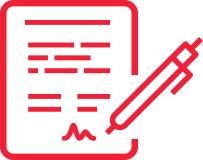Menu
Congress Reintroduces the Patent Eligibility Restoration Act and PREVAIL Act
October 23rd, 2025

On May 1, Senators Thom Tillis (R-NC) and Chris Coons (D-DE), with Representatives Kevin Kiley (R-CA) and Scott Peters (D-CA), officially reintroduced the Patent Eligibility Restoration Act (PERA).
PERA would eliminate judicial exceptions to patent eligibility under 35 U.S.C. § 101 and clarify the subject matter eligibility requirements of Section 101.
On the same day, Tillis and Coons, along with Senators Dick Durbin (D-IL) and Mazie Hirono (D-HI), and Representatives Nathaniel Moran (R-TX) and Deborah Ross (D-NC), reintroduced the Promoting and Respecting Economically Vital American Innovation Leadership (PREVAIL) Act.
The PREVAIL Act would reform patent validity proceedings at the Patent Trial and Appeal Board (PTAB) by harmonizing claim construction and burden of proof with federal district court standards, requiring PTAB petitioners to certify they meet the requirements for using the PTAB, and requiring petitioners to choose between the district court and the PTAB for pursuing validity challenges.
A press release from Tillis explains the rationale for PERA as follows:
Clear, reliable, and predictable patent rights are imperative to enable investments in the broad array of innovative technologies that are critical to the economic and global competitiveness of the United States, and to ensuring the national security of our great country.
Unfortunately, a series of Supreme Court decisions have rendered patent eligibility law unclear, unreliable, and unpredictable, resulting in U.S. inventors being unable to obtain patents in areas where our economic peers offer patent protection. This is particularly concerning in the economically critical areas of biotechnology and artificial intelligence. This bipartisan, bicameral legislation maintains the existing statutory categories of eligible subject matter, which have worked well for over two centuries, while addressing inappropriate judicially created eligibility limitations by creating clear rules for what is eligible.
According to the press release,
As of 2021, all 12 then-sitting judges of the United States Court of Appeals for the Federal Circuit lamented the state of the law. Witnesses and stakeholders from a wide array of industries, fields, interest groups, and academia have testified and submitted comments confirming the uncertainty and detailing the detrimental effects of patent eligibility confusion in the United States.
The bill, says Tillis, “eliminates the overly malleable set of current judicial exceptions – replacing them with five specific, defined statutory exclusions.”
The exclusions from patentability are as follows:
- A mathematical formula that is not part of an invention that is in a category described in subparagraph (B).
- A mental process performed solely in the mind of a human being.
- An unmodified human gene, as that gene exists in the human body.
- An unmodified human gene that is isolated from the human body, but otherwise the same as that gene exists in the human body.
- An unmodified natural material, as that material exists in nature.
- A process that is substantially economic, financial, business, social, cultural, or artistic.
Under the last category, the bill gives the examples of
process claims drawn solely to the steps undertaken by human beings in methods of doing business, performing dance moves, offering marriage proposals, and the like…
According to a press release from Coons,
Unfortunately, bad actors ranging from multinational corporations to overseas grifters have spent the last decade exploiting the PTAB to harass innovators and prevent them from profiting off their creations.
The press release states that
The Patent Trial and Appeal Board (PTAB) was created within the U.S. Patent and Trademark Office (USPTO) to provide a faster, more efficient process for adjudicating patent validity than going to federal district court. However, in practice, the PTAB has become a forum where patent claims are consistently invalidated through proceedings that are duplicative of – not an alternative to – the district court. According to USPTO data, approximately 80% of PTAB proceedings that reach a final written decision result in the invalidation of at least one challenged patent claim. Two-thirds of those proceedings result in the invalidation of all challenged patent claims.
The PREVAIL Act would reform the PTAB as follows:
- Require standing for PTAB challengers and limit repeated petitions challenging the same patent
- Harmonize PTAB claim construction and burden of proof with the federal district court
- End duplicative patent challenges by requiring a party to choose between making its validity challenges before the PTAB or in district court
- Increase transparency by prohibiting the USPTO director from influencing PTAB panel decisions
The text of the bill is available here.
According to a fact sheet about the bill,
The United States is ceding technological supremacy to China. A recent State Department study found that the U.S. lags behind China in 37 out of 44 emerging technology areas—including defense, space, robotics, energy, biotechnology, artificial intelligence (AI), and advanced materials manufacturing. Former U.S. Patent and Trademark Office (USPTO) Directors from both Democratic and Republican administrations have explained that “China’s extensive investments” in “strengthening its intellectual property” system has “enabled it to catch up to, and in some areas surpass, our capabilities in [AI] and other emerging technologies.”
To compete globally, the U.S. must similarly invest in protecting intellectual property rights. However, the PTAB has become a forum where patent claims are consistently invalidated, weakening the United States’ ability to compete on the global stage.
The fact sheet explains that
Currently, anyone can challenge a patent in the PTAB, even if they do not have a real reason, or legal standing, to do so. Multiple parties can also work together to bring separate or repeated challenges against a single patent or patent owner—including small businesses or independent innovators with limited resources.
The PREVAIL Act would address this as follows:
To file a petition, the PREVAIL Act requires that a petitioner certify that it is
(1) a nonprofit organization that
(a) is tax exempt under 501(c)(3),
(b) does not have any funder or member that could potentially be accused of infringing the challenged patent, and
(c) is not filing petitions as its principal business;
(2) wants freedom to operate in the same space as the challenged patent;
(3) has standing to bring a declaratory judgment action in district court; or
(4) has been sued for infringement of the challenged patent.
PREVAIL also limits multiple PTAB challenges against the same patent by prohibiting any entity financially contributing to a PTAB challenge from bringing its own challenge.
Categories: Patents








